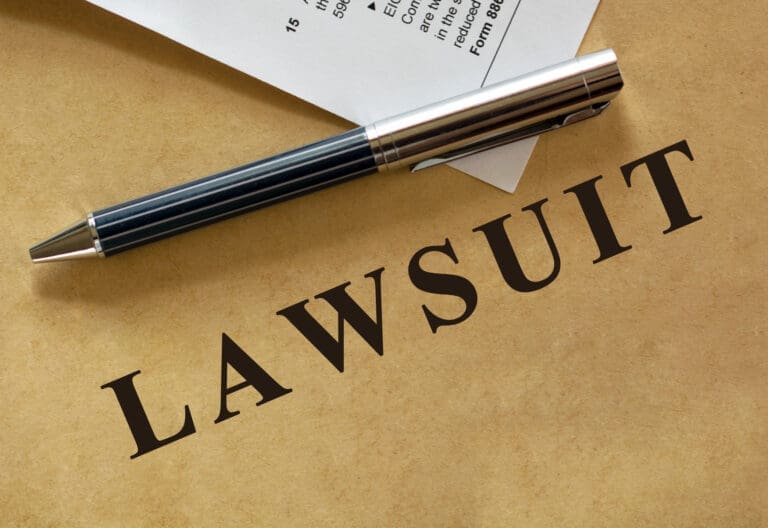
Comprender la prescripción for your case is crucial to protecting your legal rights and ensuring timely action. The statute of limitations refers to the maximum time period you have to initiate legal proceedings from the date of the alleged offense. This article will delve into the concept of the statute of limitations, how it applies to various legal cases, and how you can obtain professional legal advice to navigate these time constraints effectively.
Understanding the Statute of Limitations
The statute of limitations is a legal principle that sets a deadline for filing lawsuits. Once this period expires, you may lose your right to bring a claim, regardless of its merits.
Definición y finalidad
The statute of limitations serves several important purposes. It encourages plaintiffs to pursue their claims diligently, ensures evidence remains fresh and reliable, and provides defendants with certainty and protection from indefinite exposure to litigation. By enforcing a time limit, the law aims to balance the interests of both parties and maintain fairness in the judicial process.
How Statutes of Limitations Vary
The statute of limitations varies depending on the type of legal case and jurisdiction. For instance, personal injury claims might have a different limitation period compared to contract disputes or medical malpractice cases. Additionally, certain circumstances, such as the discovery of harm or the age of the plaintiff, can influence the applicable time frame. It is essential to consult with a legal professional to understand the specific limitations for your case.
Statute of Limitations in Civil Law
In civil law, the statute of limitations can significantly impact the outcome of your case. Understanding the deadlines for various types of civil claims is vital for protecting your legal rights.
Reclamaciones por daños personales
Personal injury claims often involve accidents or injuries caused by another party’s negligence. The statute of limitations for personal injury cases typically ranges from one to six years, depending on the jurisdiction. For example, in some states, you may have two years from the date of the accident to file a personal injury lawsuit. Consulting a abogado de lesiones personales can help ensure you file within the required time frame.
Medical Malpractice Claims
Medical malpractice claims are subject to specific statutes of limitations, often influenced by the descubrimiento rule. This rule allows the statute of limitations to start when the injury is discovered, rather than when the malpractice occurred. Typically, these cases must be filed within two to four years of the incident or discovery. Given the complexity of medical malpractice cases, seeking advice from a medical malpractice attorney es crucial.
Property Damage Claims
Property damage claims involve seeking compensation for harm caused to your property, such as through vandalism, accidents, or natural disasters. The statute of limitations for property damage claims can vary widely, generally falling between two to six years. If your property has been damaged, it is important to act promptly and consult with a property damage lawyer to determine the appropriate steps to take.
Case Studies: Landmark Cases on Statute of Limitations
Case Study 1: Discovery Rule in Medical Malpractice
One notable case that highlights the application of the discovery rule in medical malpractice is the case of Doe v. Roe Hospital. In this case, the patient discovered a surgical instrument left inside her body several years after the surgery. The court ruled that the statute of limitations began when the patient discovered the instrument, not when the surgery took place. This case underscores the importance of understanding how the discovery rule can impact the statute of limitations in medical malpractice cases.
Case Study 2: Tolling Due to Defendant’s Absence
En Smith v. Jones, the defendant fled the jurisdiction to avoid being served with a lawsuit. The court decided to toll, or pause, the statute of limitations until the defendant was found and brought back to the jurisdiction. This case illustrates how the statute of limitations can be extended under certain circumstances, ensuring that plaintiffs are not disadvantaged by the defendant’s actions.
Legal Theories and the Statute of Limitations
The Discovery Rule
The discovery rule is a legal principle that delays the start of the statute of limitations period until the injury is discovered or reasonably should have been discovered. This rule is particularly important in cases where the harm is not immediately apparent, such as in medical malpractice or product liability cases. Understanding the discovery rule can help plaintiffs ensure that their claims are filed within the permissible time frame.
Plazo de prescripción
Tolling refers to the legal suspension or extension of the statute of limitations. Various factors can toll the statute, such as the defendant’s absence from the jurisdiction, the plaintiff’s minority or mental incapacity, or fraudulent concealment of the cause of action. Recognizing situations that warrant tolling can be crucial in extending the period available to file a lawsuit.
Statute of Limitations in Criminal Law
In criminal law, the statute of limitations determines how long prosecutors have to bring charges against a suspect. These limitations vary based on the severity of the crime.
Misdemeanors vs. Felonies
The statute of limitations for misdemeanors is generally shorter than for felonies. Misdemeanors might have a statute of limitations ranging from one to three years, whereas felonies can range from three years to no limit at all for serious offenses like murder. Understanding these distinctions is vital for both defendants and victims seeking justice.
Exceptions and Extensions
Certain factors can extend or toll (pause) the statute of limitations in criminal cases. For example, if the suspect is fleeing the jurisdiction, the statute may be tolled until they are apprehended. Similarly, for crimes involving minors, the statute of limitations might not begin until the victim reaches adulthood. Abogados penalistas can provide detailed guidance on how these exceptions may apply to specific cases.
Búsqueda de asesoramiento jurídico
Navigating the statute of limitations requires a clear understanding of legal principles and timely action. Professional legal advice is indispensable in this regard.
Consulting an Attorney
Consulting an attorney is the first step to ensure you understand the statute of limitations for your case. A qualified lawyer can provide tailored advice based on the specifics of your situation. They can help you gather necessary evidence, file paperwork correctly, and meet all deadlines to preserve your rights.
Finding the Right Legal Professional
Choosing the right legal professional is crucial for effectively managing your case. Whether you need a abogado de lesiones personales, a medical malpractice lawyer, or a abogado penalista, it is essential to select someone with expertise in the relevant area of law. Look for lawyers with a proven track record, positive client reviews, and a clear communication style.
Preparing for Your Consultation
Before meeting with an attorney, gather all relevant documents and information related to your case. This includes any police reports, medical records, photographs, correspondence, and witness statements. Being well-prepared for your consultation can help the attorney assess your situation more accurately and provide precise guidance.
Impact of Missing the Statute of Limitations
Failing to file a lawsuit within the statute of limitations can have severe consequences. Understanding these impacts underscores the importance of timely legal action.
Dismissal of Claims
If you miss the statute of limitations, your case is likely to be dismissed. Courts strictly enforce these deadlines, and once expired, you lose the legal right to pursue your claim. This means you will be unable to recover any compensation or seek justice for your grievances, regardless of the case’s merits.
Limited Exceptions
While there are limited exceptions to the statute of limitations, such as the discovery rule or tolling due to fraud, these are not universally applicable and depend on the specifics of the case and jurisdiction. Relying on exceptions is risky and should be a last resort, emphasizing the need to act promptly and seek legal advice early.
Trending Topics Related to Statute of Limitations
Staying informed about trending topics related to the statute of limitations can provide valuable insights and aid in understanding recent legal developments.
Changes in Legislation
Legislation governing the statute of limitations is subject to change. Recent trends show a movement towards extending or eliminating the statute of limitations for certain crimes, such as sexual assault, to provide victims more time to come forward. Keeping abreast of these changes can impact how you approach your case and the urgency with which you need to act.
Casos de gran repercusión
High-profile cases often bring attention to the statute of limitations, highlighting its impact and sparking public debate. Following these cases can provide a broader understanding of how these laws are applied and the challenges faced by individuals seeking justice after significant time has passed.
Technological Advancements
Technological advancements in evidence collection and preservation can also influence statute of limitations cases. Improved forensic methods, digital evidence, and data analytics can extend the timeframe within which crimes are discovered and prosecuted. Staying informed about these advancements can affect your legal strategy and the timing of your case.
How to Protect Your Legal Rights
Protecting your legal rights involves proactive steps and a thorough understanding of the legal landscape.
Acting Promptly
One of the most effective ways to protect your rights is to act promptly. As soon as you become aware of a potential legal issue, seek legal advice and begin the process of gathering evidence and documentation. Delaying action can jeopardize your ability to file a claim and secure compensation or justice.
Documenting Evidence
Thoroughly documenting all relevant evidence is crucial for building a strong case. Keep detailed records of all incidents, injuries, damages, and communications related to your case. This documentation can be pivotal in proving your claim and meeting legal requirements.
Staying Informed
Stay informed about your rights and the legal processes related to your case. Regularly consult with your attorney, follow their advice, and keep up to date with any changes in the law that may affect your situation. Being proactive and knowledgeable can significantly impact the outcome of your case.
Conclusión
Comprender la prescripción for your case is essential for protecting your legal rights and ensuring timely action. Whether dealing with personal injury, medical malpractice, property damage, or criminal charges, knowing the applicable deadlines and seeking prompt legal advice can make a significant difference in your ability to pursue justice. By staying informed, acting swiftly, and consulting with qualified legal professionals, you can navigate the complexities of the statute of limitations and safeguard your rights effectively.








